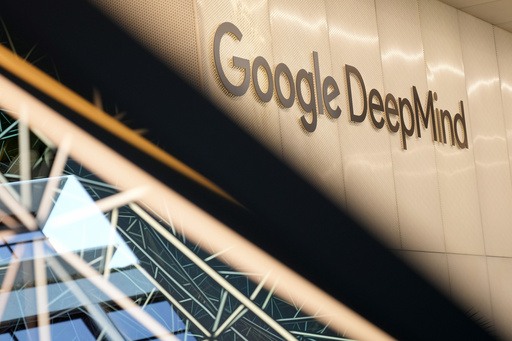Geoffrey Hinton, a trailblazer in artificial intelligence, celebrated his recent Nobel Prize in Physics by driving a rented car to Google’s headquarters in California. Despite having left Google and not conducting his groundbreaking research at the company, Hinton’s festivities symbolized the remarkable rise of AI as both a scientific marvel and a commercial powerhouse.
Just hours after Hinton’s celebration, two of Google’s AI division employees were awarded a Nobel Prize in Chemistry for their innovative work using AI to predict and design novel proteins. Jeanette Wing, a professor of computer science at Columbia University, remarked on this significant achievement, claiming it showcases “the power of computer science and artificial intelligence.”
Hinton’s journey in AI has not always appeared promising, especially for those who began researching interconnected computer nodes modeled after human brain neurons decades ago. Hinton, who shared the physics Nobel with John Hopfield, emphasized that advancements in neural networks stemmed from “basic, curiosity-driven research,” rather than merely focusing financial resources on practical applications.
This foundational research thrived long before the emergence of Google. However, the current tech landscape creates an environment where AI researchers can further develop their ideas, even while posing pressing ethical issues regarding their societal impacts. The significant backing from a few corporate giants is necessary for the most ambitious AI ventures, given that the required computational resources and data are immense. Wing highlighted this limited availability of such capabilities to a few tech companies, naming Google and Microsoft as key players.
Hinton’s Nobel Prize companions, Demis Hassabis and John Jumper from Google’s DeepMind, along with David Baker from the University of Washington, contributed to advancements that could facilitate the discovery of new medicines. Hassabis, CEO and co-founder of DeepMind, expressed his ambition to build a modern research lab reminiscent of Bell Labs, a renowned industrial research facility that fostered numerous Nobel winning scientists over the years. “I wanted to recreate a modern-day industrial research lab that really did cutting-edge research,” Hassabis noted, attributing the support from Google as pivotal in this endeavor.
At 76, Hinton left his position at Google last year to freely voice concerns regarding AI, especially regarding the potential risks if humanity loses control over increasingly intelligent machines. Upon receiving the Nobel committee’s phone call while staying at a hotel in Palo Alto, California, Hinton found himself celebrating shortly after, joining colleagues in a jubilant atmosphere at the Google campus in Mountain View. Richard Zemel, a former doctoral student of Hinton, remarked on the excitement surrounding big tech’s exploration of commercial AI success, but emphasized that the essence of Hinton’s work lies in the fundamental research that has garnered Nobel recognition.
The celebration had notable attendees, including Google executives and Ilya Sutskever, co-founder and former chief scientist of OpenAI, who was involved in recent organizational upheaval within the company. Hinton used a virtual press conference to recognize one of his former students for their role in the ousting of OpenAI’s CEO Sam Altman. He expressed a sense of pride in the situation, elaborating that OpenAI’s initial purpose focused on developing safe artificial general intelligence, which he perceived to have shifted toward profit priorities over safety concerns under Altman’s leadership.
In response, OpenAI asserted its commitment to producing highly capable and secure AI systems, claiming to serve hundreds of millions of people weekly. The tension surrounding AI development continues to exist, particularly as building viable AI systems now requires extensive resources that typical academic institutions often lack. Michael Kearns, a professor at the University of Pennsylvania, commented on the recent accolades as a triumph for interdisciplinary research, emphasizing that Hinton is only the second individual to win both a Nobel Prize and the prestigious Turing Award.
Reflecting on the intersection of computing and scientific discovery, Wing noted that the exploration of AI applications is only in its infancy. “We’re just at the beginning in terms of scientific discovery using AI,” she stated, reinforcing the ongoing potential for advancements in various fields facilitated by artificial intelligence.
